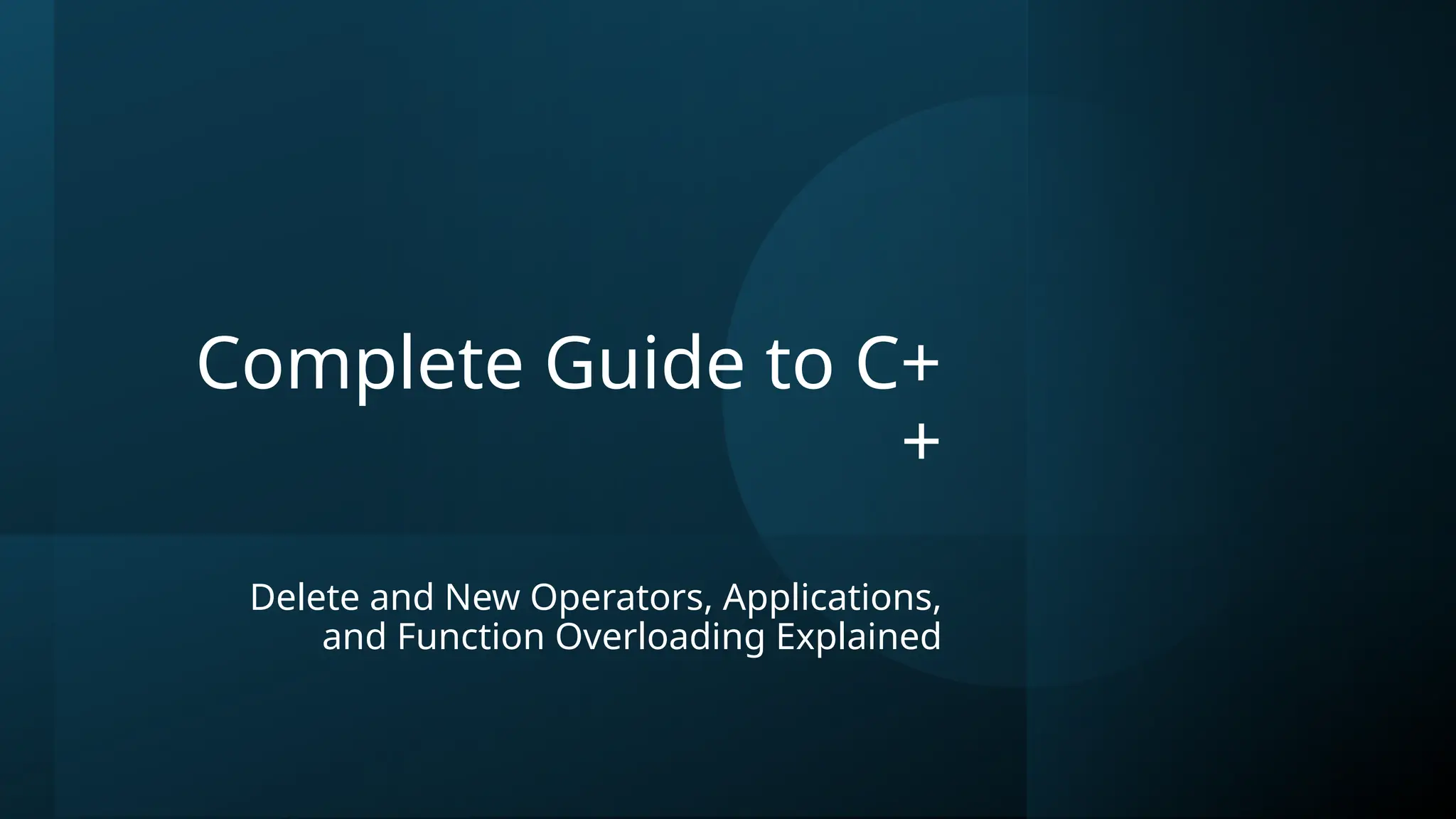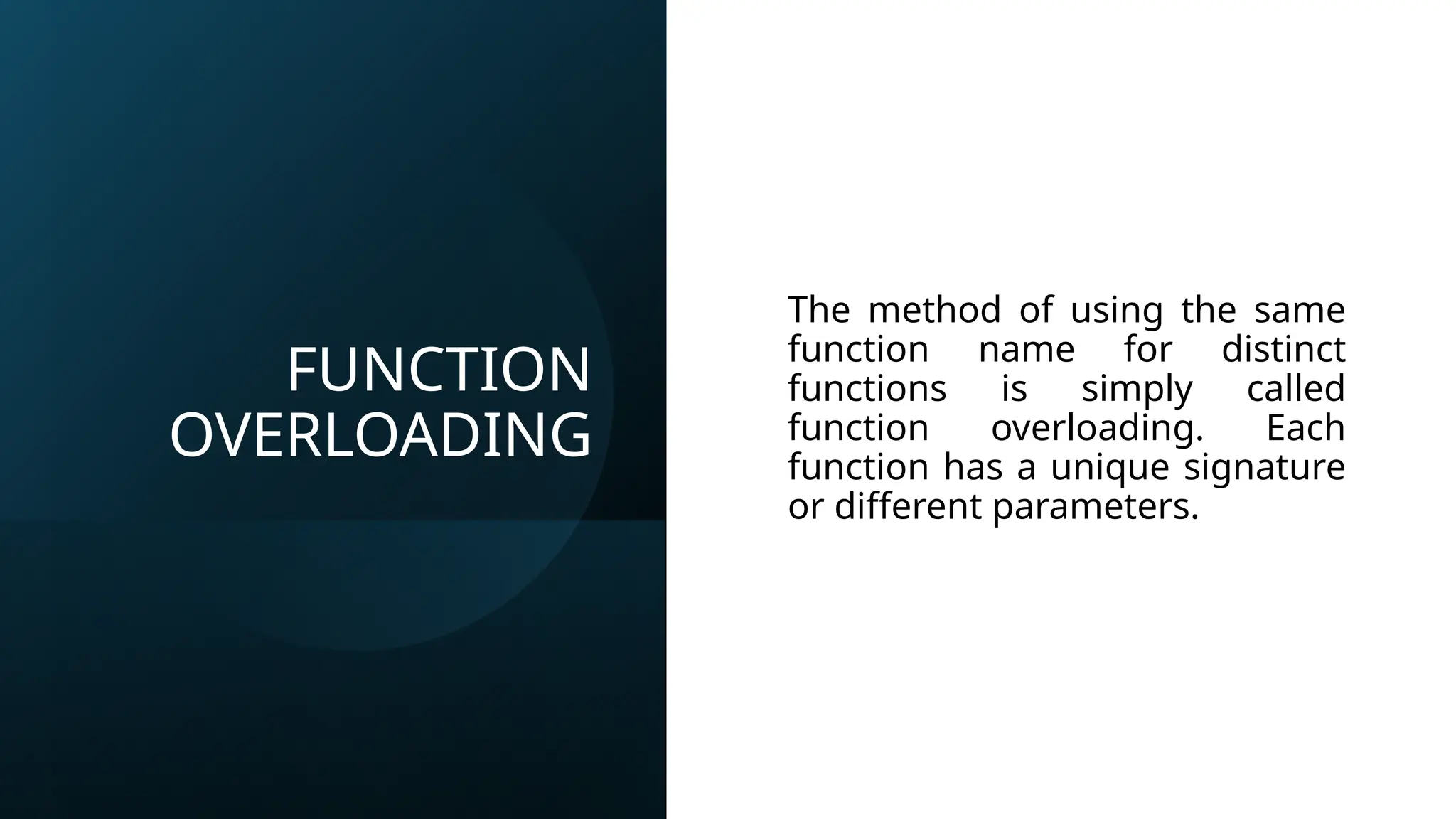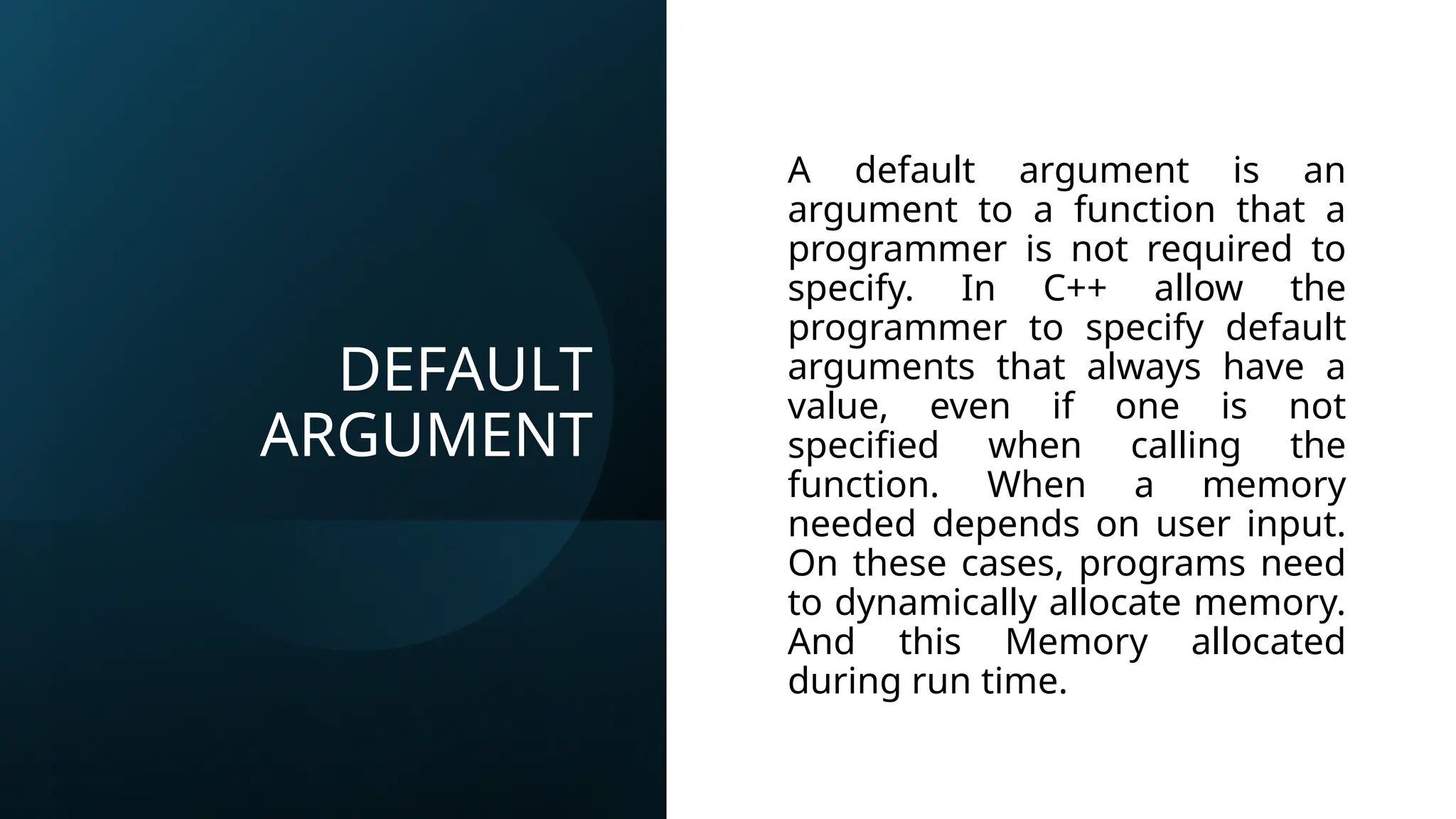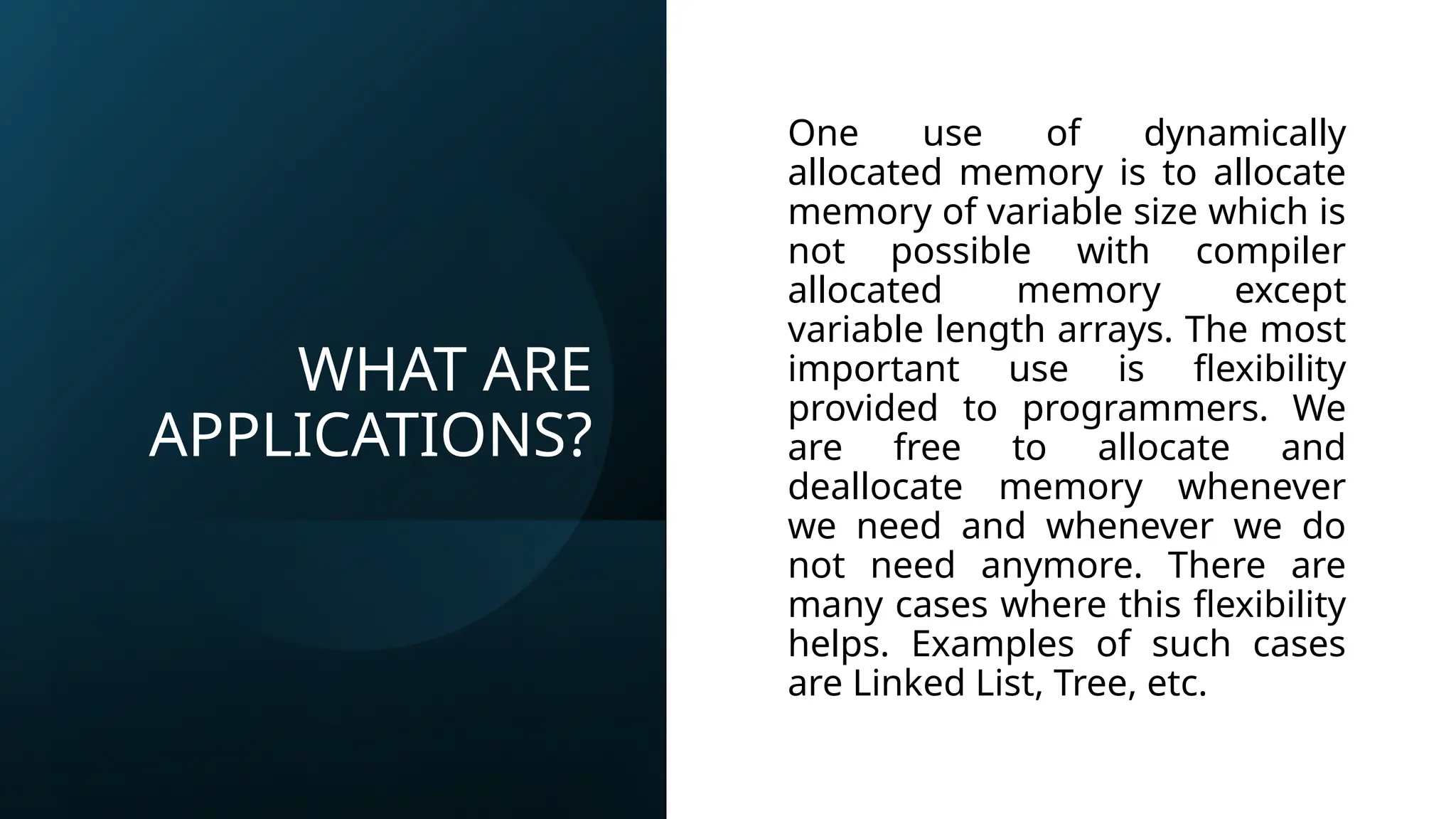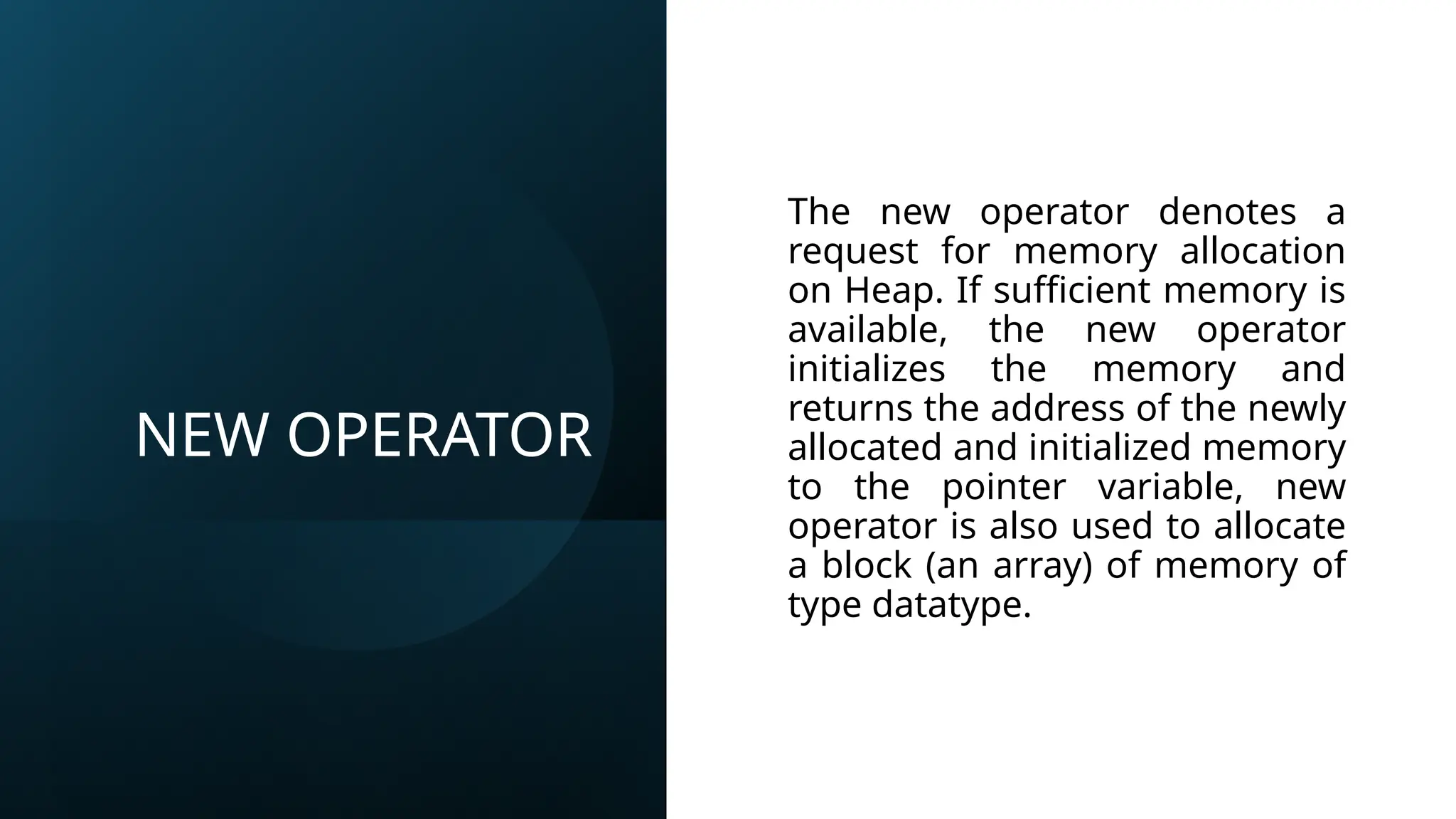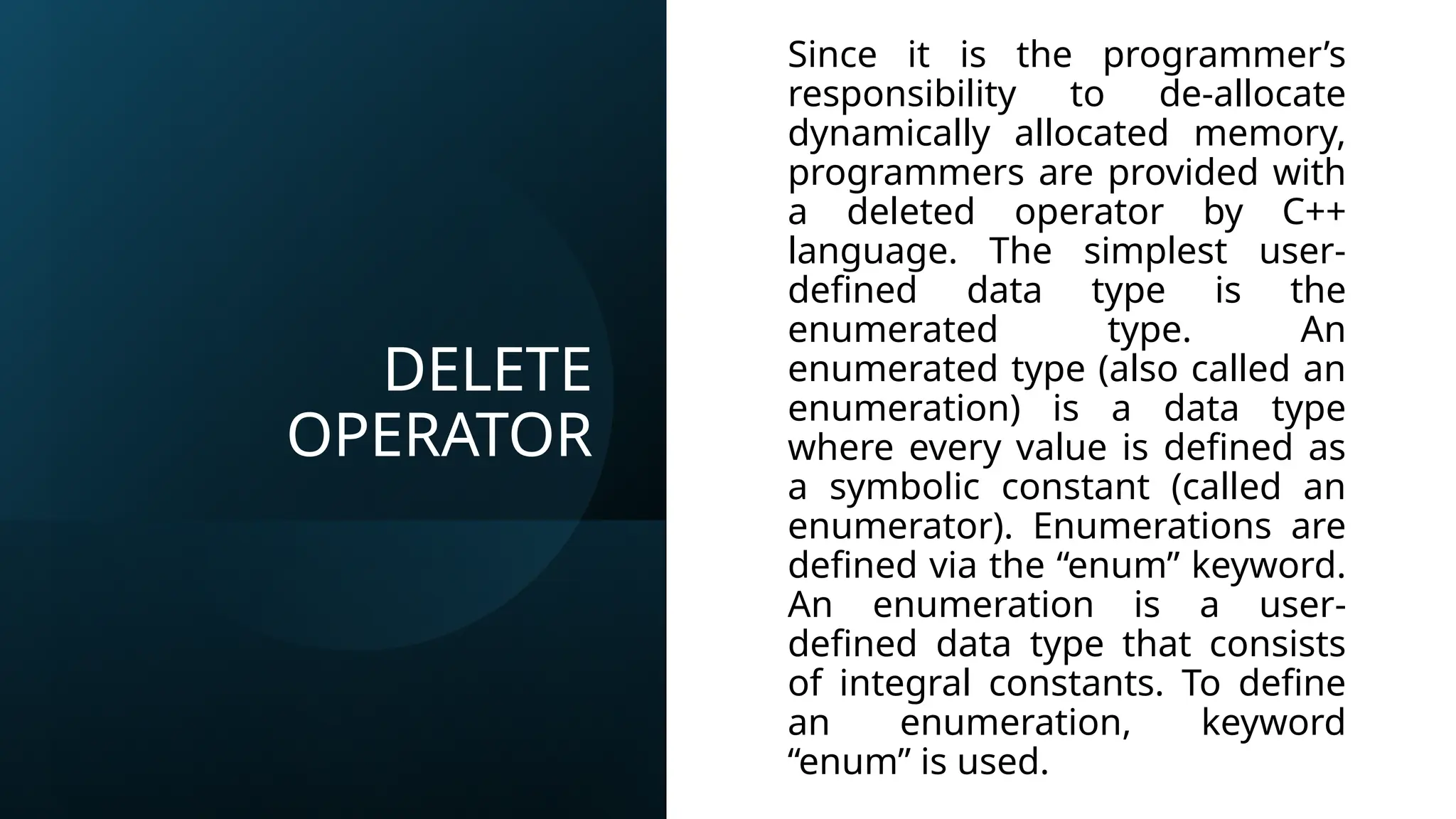This document provides a comprehensive guide on C++ memory management, focusing on the dynamic allocation of memory using the 'new' and 'delete' operators. It explains concepts like function overloading, default arguments, and the use of enumerated types. The flexibility of dynamically allocated memory is highlighted, particularly in applications such as linked lists and trees.
